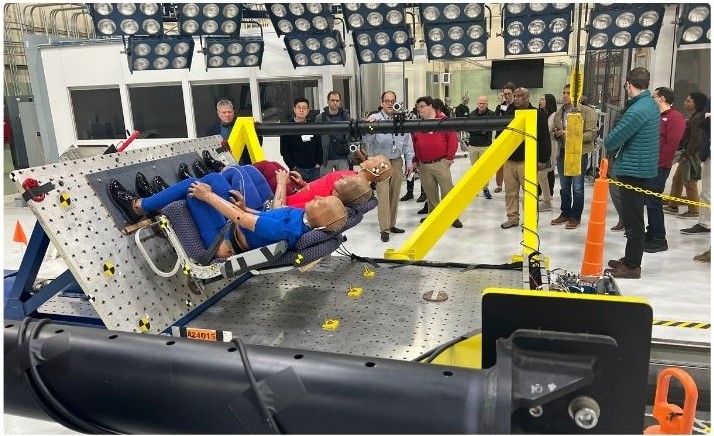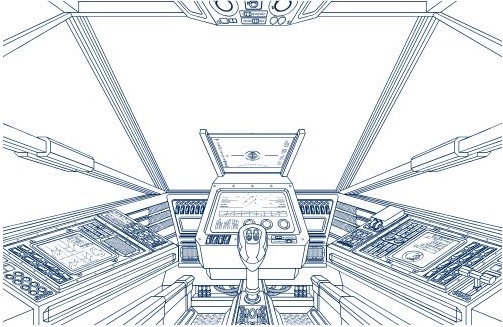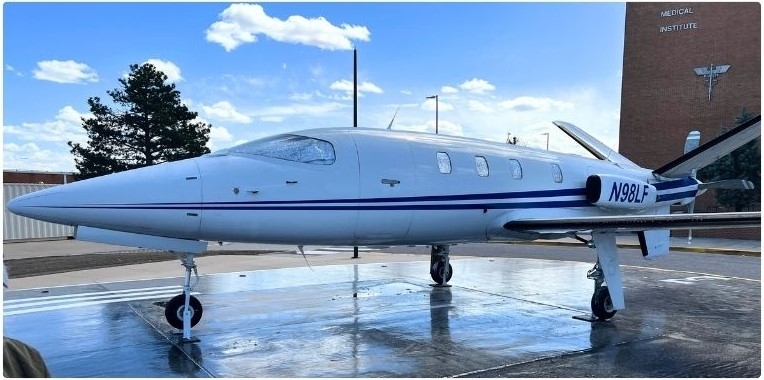Flying High with Medicine: UTHealth Space Medicine Fellow Completes FAA AME Training
Last month, Sam Beger, MD, MPH, current UTHealth Houston Space Medicine Fellow, completed the Federal Aviation Administration (FAA) Aviation Medical Examiner (AME) course in Oklahoma City, OK. While many might not know what an AME is or does, this unique role is essential to keeping our skies safe.

What Is an AME?
An Aviation Medical Examiner (AME) is a licensed physician designated by the FAA to perform flight physicals and certify civilian pilots as medically fit to fly.
These physicals are more than a check-up; they’re detailed evaluations of a pilot’s medical history, vision, hearing, cardiovascular status, neurological function, and psychological well-being.

The FAA maintains a desired ratio of about 150 pilots to every AME, but with the growing demand for aviation services (and the rise of commercial spaceflight), there is an increasing need for young physicians like Dr. Beger to step into this vital role.
A Week in Oklahoma City
The 5-day AME training course is hosted at the FAA Civil Aerospace Medical Institute (CAMI) in Oklahoma City, OK, and is an immersive experience in flight medicine.
Here’s a look at what the week included:
- Clinical lectures on aviation physiology, ophthalmology, neurology, psychiatry, and substance abuse in pilots
- Regulatory education on FAA medical standards, disqualifying conditions, and medical certification pathways
- Group case discussions with FAA flight surgeons on complex and nuanced cases
- Hands-on simulation experiences, including:
- A hypobaric (altitude) chamber ascent to 25,000 feet, where Sam’s oxygen saturation and cognition were monitored to simulate hypoxia and assess altitude tolerance
- Spatial disorientation simulators that mimic vestibular illusions pilots may experience in flight
- Research lab tours, showcasing the FAA’s work in flight physiology and aerospace safety
Why It Matters
As spaceflight becomes more accessible and routine, the principles of aviation medicine are more important than ever. Space medicine draws heavily on the legacy of flight medicine—from managing hypoxia and decompression sickness to understanding the human body’s response to acceleration, radiation, and isolation.

Dr. Beger’s training as an FAA-designated AME not only enables him to serve the pilot community but also deepens his expertise in human performance and health in extreme environments, aligning perfectly with UTHealth Houston’s mission in aerospace medicine.
What’s Next?
As a newly certified AME, Dr. Beger joins a select group of physicians nationwide with the authority and training to certify pilots for flight.

Whether supporting general aviation, commercial airlines, or the next generation of space travelers, AMEs play a critical role in ensuring that those who take to the skies do so safely and responsibly.
We’re proud to have Dr. Sam Beger representing UTHealth Houston at the intersection of medicine, aviation, and exploration!